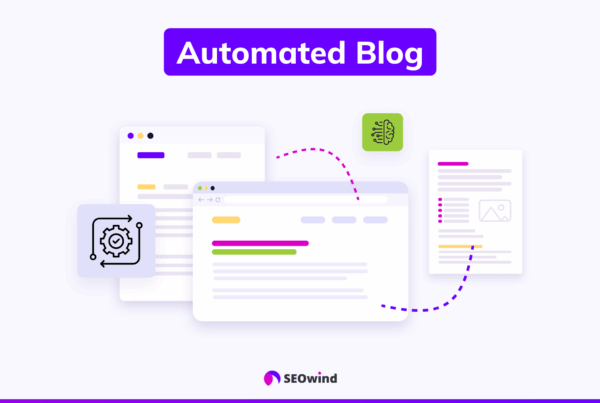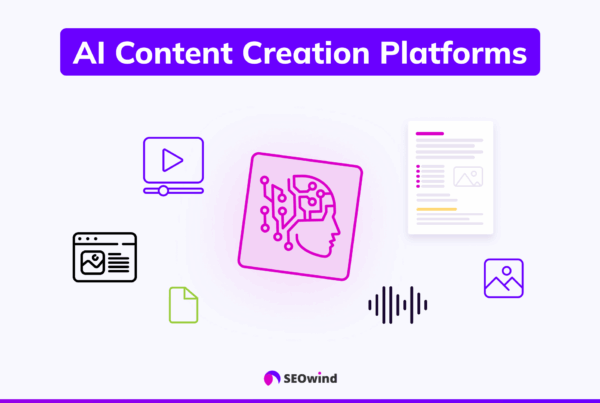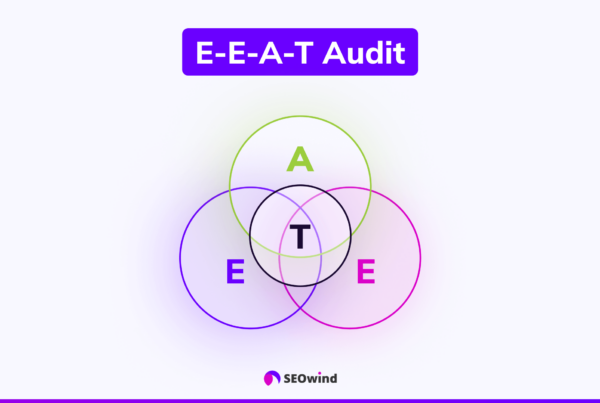The digital landscape is abuzz with the rise of artificial intelligence (AI) and its massive implications for various industries. One area where AI’s impact is particularly intriguing is Search Engine Optimization (SEO). As AI-powered tools become increasingly sophisticated, questions will naturally arise about the future of SEO. Will AI eventually render traditional SEO practices obsolete? Or will it enhance and transform the way we approach search optimization?
Will SEO be replaced by AI?
No, SEO will not be entirely replaced by AI. While AI tools can automate specific tasks and provide valuable insights, they don’t offer a human touch and critical thinking, which are both necessary for a holistic SEO strategy. AI excels at data analysis and pattern recognition, but it cannot replicate the creativity, strategic thinking, and understanding of human behavior that are crucial for effective SEO.
Still, SEO will not stay the same. It will change. How? We don’t know yet but I’ll try to investigate its various aspects.
How AI is Transforming Search Engines and SEO
Integrating AI into search engines has revolutionized how we find information online. AI algorithms can now understand search intent, context, and user behavior with remarkable accuracy. This has led to a shift from keyword-centric SEO to a more holistic approach that focuses on delivering relevant and valuable content to users.
One of the most significant ways AI impacts SEO is through natural language processing (NLP). NLP enables search engines to interpret the meaning behind search queries rather than focusing on simple keyword matching. This means that SEO professionals need to focus on creating content that not only is keyword-rich and semantically relevant but also comprehensively answers users’ questions.
AI’s Content Creation Capabilities
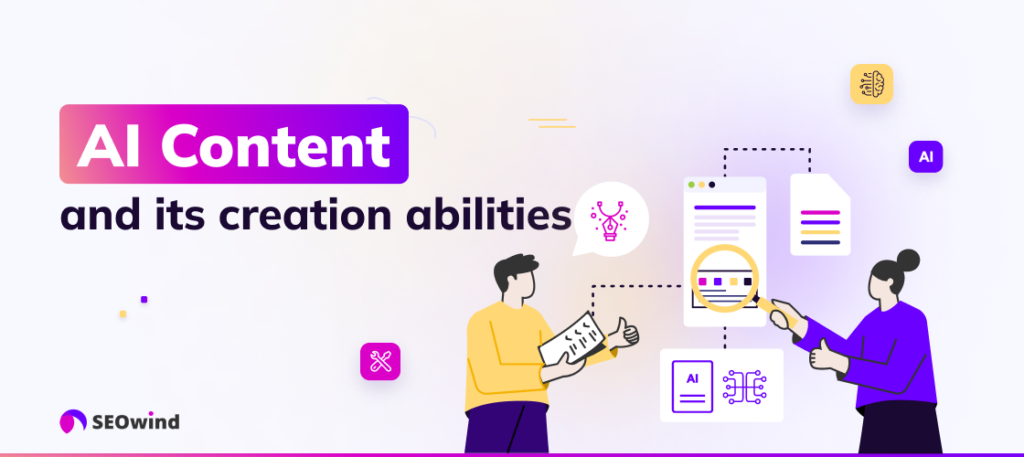
The rise of AI-powered writing tools has sparked both excitement and apprehension among content creators around the world.
While AI can generate text, translate languages, and even write creative content, it’s important to understand its limitations. AI tools like Jasper or SEOwind excel at producing factual content based on the data with which they’re trained. They can whip up product descriptions, news articles, and reports in the blink of an eye. However, AI often comes up short when attempting to produce nuanced, creative, or deeply personal content.
Think of AI as a tireless writing assistant rather than a replacement for human creativity and expertise. It can help you overcome writer’s block, generate ideas, and even write first drafts, making it easier to focus on the strategic and creative aspects of content creation.
The Myths and Realities
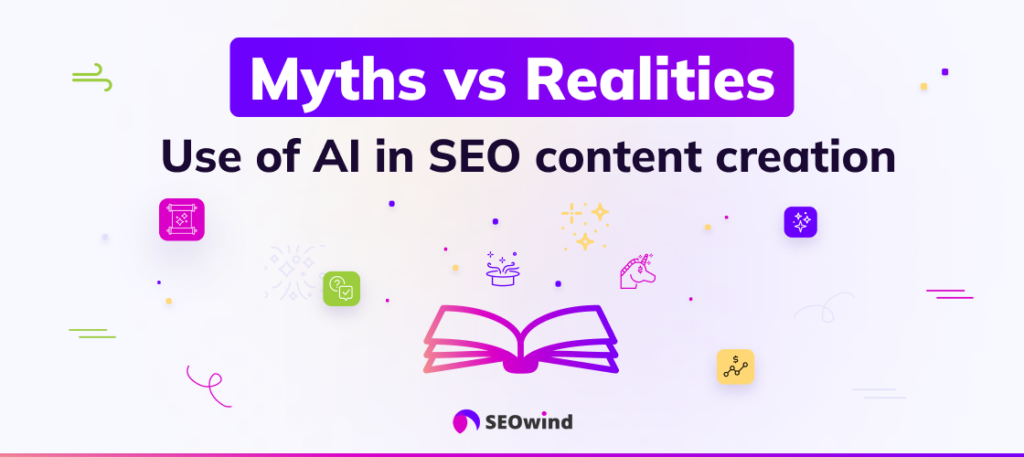
The rise of AI in content creation and SEO has led to a whirlwind of speculation. Let’s debunk some common myths and expose the realities of AI’s impact on SEO.
- AI delivers low-quality SEO content – if you let it
There’s a misconception that AI content is low-quality and spammy. While it’s true that early AI models often produced robotic and unnatural text, AI technology has become significantly better. Today, advanced models like Bard can generate high-quality, informative, and engaging content that resonates with readers. However, the quality of AI-generated content still depends on the input it receives. As the saying goes, “garbage in, garbage out.” If you provide poor prompts or lack clear guidelines, the output will likely reflect that.
- AI won’t necessarily replace human SEO
There is a widespread fear of AI replacing human jobs. However, when it comes to SEO, AI is more likely to augment human capabilities than replace us entirely. These tools can automate repetitive tasks, such as keyword research and data analysis, freeing up SEO professionals to focus on strategic planning, creative content development, and building relationships.
Capterra Research indicates that “45% of marketing professionals spend half of their workweek creating content.” AI can help streamline this process, allowing SEO experts to dedicate more time to higher-level tasks that require human ingenuity and expertise.
- AI-powered search results will change SEO, not kill it
Search engines are constantly evolving, and AI plays a significant role in shaping their future. AI algorithms are becoming increasingly sophisticated when it comes to understanding user intent and delivering more personalized and relevant search results. This means SEO strategies need to adapt. Rather than signaling the demise of SEO, AI presents an opportunity to refine and enhance our strategies. As search engines become more intelligent, SEO professionals should focus on creating high-quality content that provides genuine value to users and aligns with their search intent.
Critical Analysis: AI’s Capabilities VS Human Ingenuity
AI excels at processing vast amounts of data, identifying patterns, and automating repetitive tasks. And while all of these activities are valuable for SEO, AI currently lacks the ability to understand context, intent, and the nuances of human emotion. This is where SEO professionals shine by providing creativity, strategic thinking, and a deep understanding of user behavior.
How AI Tools Are Redefining SEO Tasks
These tools are revolutionizing the way SEO tasks are handled. They can:
- Generate topic ideas and content outlines
- Conduct keyword research and competitor analysis
- Create reports and track performance metrics
These capabilities enable SEO professionals to focus on higher-level strategy, content quality, and relationship building. So, instead of discussing AI replacing human-led SEO, we should focus on how AI can augment and enhance our capabilities.
Evidence That SEO is Adapting, Not Dying
The evidence speaks for itself: the demand for SEO expertise is changing rather than diminishing. A study by Forbes Advisor reveals that, “SEO roles are projected to grow by 22% between 2020 and 2030.” This growth indicates that the industry is adapting to AI, not succumbing to it.
Case Studies: Bing, Google Bard, and Emerging AI Technologies in SEO
Search engines like Bing are already integrating AI into their algorithms and utilizing machine learning to understand search intent and deliver more relevant results. Google’s Bard, another example of AI’s growing role in SEO, provides insights and assists with content creation. These advancements demonstrate that AI is shaping the future of SEO and pushing professionals to adapt and refine their strategies.
Detailed Comparison: Traditional SEO vs. AI-enhanced SEO
| Traditional SEO | AI-enhanced SEO |
| Manual keyword research and analysis | AI-powered keyword research tools for faster and more comprehensive insights |
| Time-consuming content creation and optimization | AI assistance in content generation, optimization, and topic ideation |
| Manual backlink analysis and outreach | AI-powered tools for identifying backlink opportunities and automating outreach tasks |
| Limited ability to personalize content and user experiences | AI-driven personalization and customization for enhanced user engagement |
| Repetitive tasks like reporting and performance tracking | Automated reporting and performance tracking, freeing up time for strategic planning |
AI is not here to replace SEO but to elevate it. By embracing AI tools and adapting our strategies, SEO professionals can navigate the evolving landscape and achieve even greater results. In my opinion, we shouldn’t be worried about SEO being replaced by AI. Instead, we should ask ourselves if SEO will even exist in 10 years. And while I believe that it absolutely will, it will take on a more sophisticated, AI-powered form.
The Role of AI in Enhancing SEO Strategies
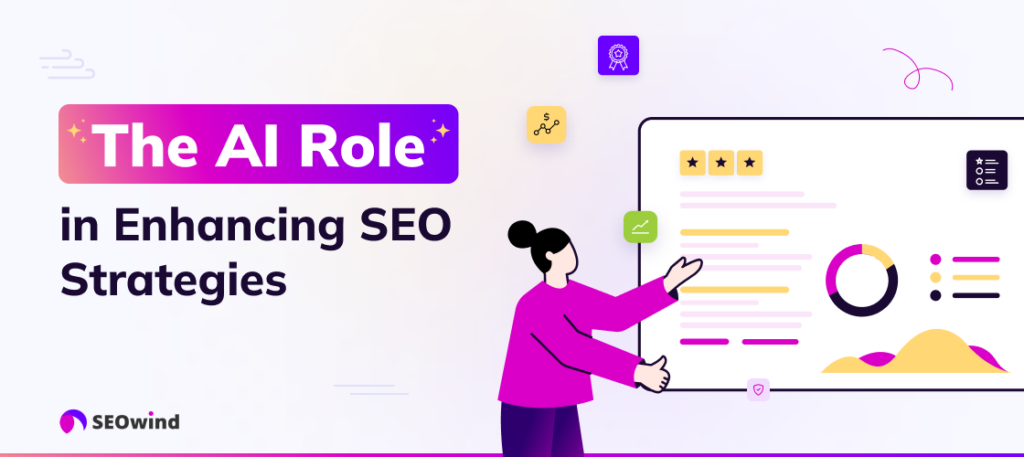
Let’s shift gears and explore how AI is revolutionizing the SEO landscape. Rather than fearing AI as a job-stealing monster, let’s view it as a powerful ally that can elevate our SEO strategies to new heights. AI tools offer a plethora of benefits for SEO professionals. These tools can automate tedious tasks, provide valuable insights, and ultimately free up our time to focus on the more strategic and creative aspects of SEO.
Integrating AI for Improved Content Quality and Optimization
AI is here to help us create high-quality, optimized content that resonates with our target audience. AI-powered writing tools like SEOwind can assist with keyword research, content generation, and optimization suggestions.
Think of it as having a tireless research assistant and a meticulous editor by your side. These tools can analyze vast amounts of data to identify relevant keywords, suggest content topics, and even generate drafts based on your specifications. However, it’s important to remember that AI should complement, not replace, human creativity and expertise.
Entity-Based Optimization: A New Frontier in SEO
The way search engines understand and interpret information is constantly evolving. Entity-based optimization, powered by AI, is emerging as a game-changer in the SEO world. This approach focuses on understanding the relationships between entities (people, places, things, and concepts) and how they connect to search queries.
AI tools can help us identify relevant entities and optimize our content to align with these connections. For example, Sara Taher, SEO Manager at Workleap, shared with us her experience using ChatGPT to find and sort entities, highlighting its efficiency and effectiveness in uncovering more entities than manual research could.
Innovative Tools and Techniques for the Modern SEO Professional
The AI revolution in SEO has produced a wave of innovative tools and techniques. From AI-powered keyword research tools to content optimization platforms and even AI-driven SEO analysis software, numerous options have hit the market in a relatively short amount of time.
Tools like SEOwind empower SEO professionals to work smarter, not harder. They streamline the content creation process, provide data-driven insights, and automate tasks while maintaining the human touch that is essential for crafting engaging and compelling content.
Critical Areas for SEO Professionals to Focus On In the Age of AI
The rise of AI in the SEO landscape doesn’t signal the end of human involvement; instead, it indicates a shift in focus. While AI can automate tasks and provide data-driven insights, the human touch remains irreplaceable for certain tasks.
Creating High-Quality, Unique Content that Stands Out
AI can generate content but often lacks the depth, creativity, and emotional intelligence needed to resonate with readers. As an SEO professional, you should focus on crafting high-quality, unique content that stands out from the AI-generated crowd. This means understanding your audience’s needs, pain points, and aspirations and creating content that speaks directly to them.
Building Brand Affinity in the Age of AI
While AI is adept at analyzing data and identifying trends, it can’t replicate our ability to build genuine connections and foster brand affinity. In a world saturated with AI-driven interactions, establishing an emotional connection with your audience has become even more critical. This involves understanding your brand’s values, personality, and unique proposition and translating them into a compelling narrative that resonates with your target audience.
The Future is Cooperative: Humans and AI in SEO
The future of SEO lies in embracing AI as a powerful ally rather than fearing it as a replacement. Automated tools offer incredible efficiency and data-driven insights. They automate tasks, analyze vast amounts of data, and generate content at a scale that humans simply can’t match. However, AI lacks a nuanced understanding of human emotions and creativity and the ability to build genuine connections that are crucial for successful SEO.
The SEO industry is expected to reach a staggering $218 billion by 2030. This growth is fueled by the increasing complexity of the digital landscape and constantly changing search engine algorithms. AI tools are becoming essential for navigating this complexity, but they’re not replacing the need for human expertise. Instead, they’re allowing SEO professionals to focus on the more strategic and creative aspects of their work.
Key Areas Where SEO Will Still Reign Supreme

AI isn’t some all-powerful entity poised to eradicate SEO. It’s more like a talented apprentice, ready to help with specific tasks and free up human SEO experts to focus on the bigger picture. While AI can analyze data and automate tasks, there are vital areas where manual SEO will continue to be essential, and human expertise will remain irreplaceable:
- Strategic Planning and Goal Setting: AI may be able to crunch numbers and identify trends, but it cannot understand the nuances of a brand’s vision, target audience, and long-term goals. These strategic decisions will remain firmly in the hands of SEO experts.
- Content Ideation and Creativity: While AI can generate content, it often lacks the spark of originality and the emotional intelligence to truly connect with an audience.
- Building Relationships and Networking: SEO isn’t just about algorithms; it’s about people. Building relationships with industry influencers, journalists, and other websites is crucial for link-building and online visibility. AI can’t replicate the human touch needed to establish genuine relationships.
- Understanding User Intent and Search Behavior: AI often fails to grasp the underlying intent and emotions driving user searches. SEO experts excel at understanding user behavior and crafting strategies that align with search intent.
- Adapting to Algorithm Updates and Industry Changes: The digital landscape never stops changing, with search engine algorithms and best practices transforming regularly. People possess the critical thinking skills and adaptability needed to stay ahead of the curve and adjust strategies accordingly.
- Ethical Considerations and Brand Reputation: AI-powered tools can sometimes generate biased or unethical content. Human oversight is crucial to ensure that our SEO practices align with ethical guidelines and maintain a positive brand reputation.
Adapting to the New SEO Landscape: Strategies for Success
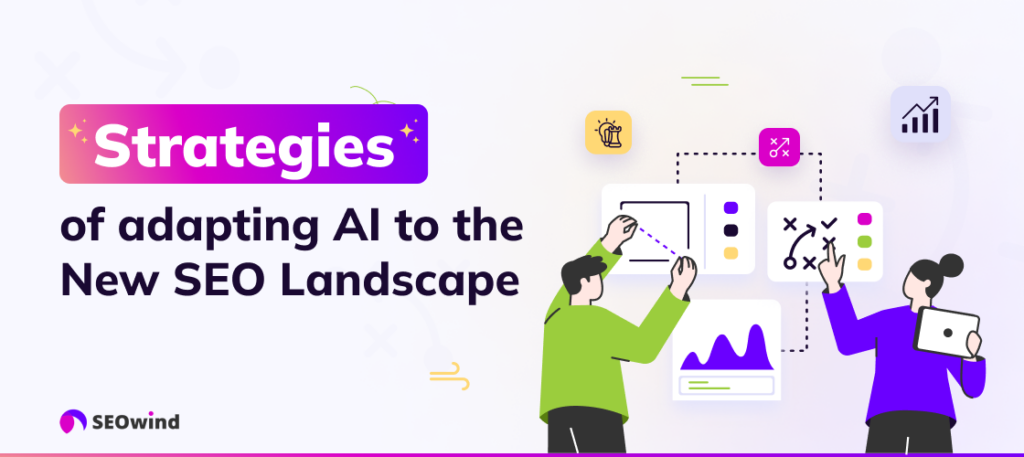
The rise of AI in SEO marks the beginning of a new era. As with any technological shift, adaptation is critical. Here are some actionable strategies to succeed in this evolving landscape:
- Embrace AI as your ally: AI tools are meant to augment your capabilities. Utilize AI-powered tools for keyword research, content optimization, and competitor analysis. This frees up your time to focus on SEO’s strategic and creative aspects, where human ingenuity truly shines.
- Content is still king, but context is queen: High-quality content remains essential, but understanding context is no less crucial. Focus on creating content that aligns with user intent and provides genuine value. AI can assist in generating topic ideas and optimizing content, but you’ll need a human touch to craft compelling narratives and build authentic connections with your audience.
- Become an entity-based SEO expert: Entity-based SEO is the future. Familiarize yourself with the concept of entities and how search engines use them to understand the relationships between different concepts. This knowledge will help you optimize your content for semantic search and improve its visibility in search results.
- Sharpen your technical SEO skills: Technical SEO remains a cornerstone of success. Ensure your website is mobile-friendly, loads quickly, and follows best practices for structured data and internal linking. AI can help with technical audits and identifying areas for improvement.
- Develop your data analysis skills: The ability to interpret data and extract actionable insights is becoming increasingly important for SEO. Utilize analytics tools to track your website’s performance, understand user behavior, and measure the effectiveness of your SEO strategies. AI can assist with data analysis and provide valuable insights, but human interpretation and decision-making are still essential.
- Stay ahead of the curve: The SEO landscape is constantly evolving. Stay updated on the latest trends and technologies by attending industry conferences, reading blogs, and engaging with other SEO professionals. A proactive approach to learning will ensure you remain at the forefront of the industry.
- Focus on building a strong brand: In a world dominated by AI-generated content, a strong brand identity is more important than ever. Invest in building brand awareness and creating a unique value proposition that sets you apart from the competition.
- Prioritize user experience: User experience (UX) is critical to SEO success. Ensure your website is easy to navigate, provides a seamless user experience, and is optimized for all devices. AI can provide insights into user behavior and help you identify areas for UX improvement.
- Build relationships with industry influencers: Connecting with industry influencers can help you expand your reach and build credibility. Automated tools can help identify relevant influencers and track your outreach efforts.
- Never stop experimenting: The best way to adapt to the changing SEO landscape is to embrace a culture of experimentation. Test different strategies, analyze the results, and continuously refine your approach.
Common questions about AI threatening SEO
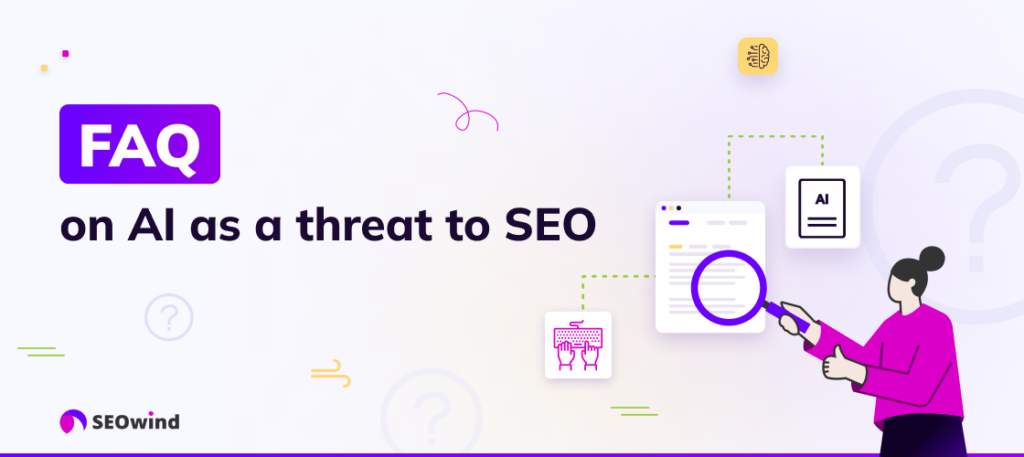
The rise of AI has sparked numerous debates, and one of the most prominent questions is whether or not AI will kill SEO. Let’s address some of the burning inquiries surrounding this topic and shed light on the evolving relationship between AI and SEO.
Is SEO dying because of AI?
Absolutely not! SEO is evolving alongside AI, not dying because of it. AI is transforming the SEO landscape, introducing new tools and techniques that can enhance our strategies. As search engines become more sophisticated due to AI integration, SEO professionals must adapt their approaches to align with these advancements.
Is AI a threat to SEO?
Rather than being a threat, AI is a powerful ally. AI tools can automate tedious work, provide data-driven insights, and help us understand search intent more deeply. By embracing AI, SEO professionals can optimize workflows and achieve better results. The key lies in leveraging AI to augment our capabilities, not replace them.
Is AI writing bad for SEO?
AI writing tools have come a long way, but they still require human oversight and editing to ensure quality and relevance. While AI can generate content quickly, it doesn’t provide the nuance, creativity, and originality that search engines and users value. AI-generated content should be treated as a starting point, requiring human refinement and optimization to meet SEO standards.
Are AI and ML killing SEO jobs?
AI and Machine Learning (ML) are transforming SEO roles, not eliminating them. SEO professionals who embrace AI and develop their skills in data analysis, AI tool utilization, and strategic thinking will continue to thrive. The demand for skilled SEO experts who can navigate the complexities of AI-driven searching will continue to grow.
Will AI replace SEO specialists?
AI will augment the capabilities of SEO specialists instead of replacing them. The human element remains crucial in understanding user intent, creating engaging content, building relationships, and adapting to the search landscape. SEO specialists who leverage AI effectively will become more efficient and successful.
Is SEO dead due to AI?
No, SEO is far from dead! It’s evolving and becoming more sophisticated with the integration of AI. As search engines become more intelligent, SEO professionals must adapt and refine their strategies to stay ahead of the curve. The future of SEO lies in the synergy between human expertise and AI-powered tools.
